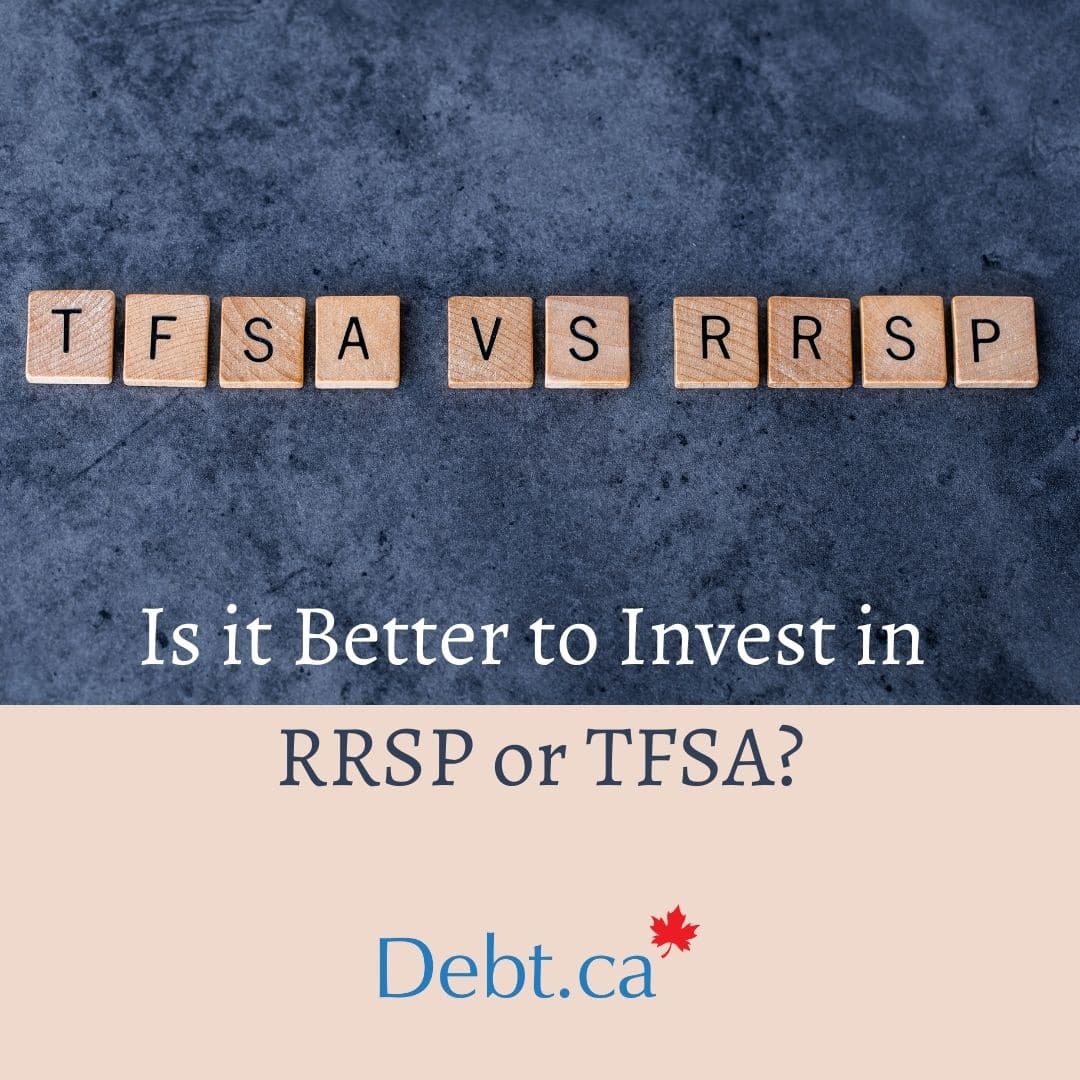Is it “better to invest in RRSP or TFSA?” that is the question. Even William Shakespeare had a hard time with this one. One of the most common investment questions Canadians also ask is: “Is it better to invest in an RRSP or TFSA?” The RRSP and TFSA both have benefits, but as with all personal finance decisions, it depends.
“RRSPs and TFSA’s are tax-advantaged accounts that offer benefits to Canadians. Sometimes it can be confusing to know which one to invest in,” says Brenda Hiscock, Certified Financial Planner at Objective Financial Partners.
Let’s take a look at the advantages and disadvantages of RRSPs and TFSAs to help you decide which account is best for you. So let’s explore further if you should invest in RRSP or TFSA.
Investing in RRSPs
RRSP is an acronym that stands for Registered Retirement Saving Plan. Contributing to an RRSP is considered tax-deductible and, as a result, can result in you receiving a higher tax refund. That’s because any contributions you make to your RRSP are subtracted from your taxable income for income tax purposes.
For example, let’s say you have a taxable income of $90,000 this year, and you contributed $10,000 to your RRSP. In this instance, you’ll only have to pay taxes on $80,000 of your income ($90,000 minus $10,000 equals $80,000). If you’re in a higher tax bracket like 40 percent, this would result in you getting an additional tax refund of $4,000 ($10,000 times 40 percent equals $4,000). Not bad!
While you may receive a tax refund upfront for contributing to your RRSP, you’ll have to pay taxes eventually. When you do withdraw money from your RRSP, the money is taxed, similar to income. However, hopefully, when you remove the funds (usually in retirement), you’re in a lower tax bracket, and thus you’ll pay less tax.
It’s important to note that RRSP withdrawals are fully taxable. Mutual funds are an investment type commonly held in RRSPs since they’re ideal for long-term investing. When you own mutual funds outside your RRSP in a non-registered account and redeem them, taxes apply to half of the amount as capital gains.
However, when you hold them inside your RRSP and cash them out, you lose that preferential tax treatment. You’ll have to pay income taxes on the full amount.
While RRSPs make sense for the majority of Canadians, they don’t make sense for everyone.
“You may be in a higher tax bracket in retirement when considering means-tested government benefits, such as Old Age Security (OAS), so a TFSA may be a better choice in this case,” says Hiscock.
Speaking of government benefit reductions, if you anticipate you’ll earn very little in retirement, it’s probably best not to invest in an RRSP. That’s because when you reach a certain age (December 31st in the year that you turn age 71), you must start withdrawing the money from your RRSP.
This could result in part or all of your Guaranteed Income Supplement (GIS) decreasing. This ends up being the equivalent of a 50 percent tax. You could have avoided all of this by not contributing to your RRSP in the first place.
Saving for retirement?
Generally speaking, it’s a good idea to invest in an RRSP if you’re saving for retirement, and you’re making more than $50,000 per year. If someone has an income below $50,000, the tax savings from an RRSP contribution is not as beneficial, notes Hiscock.
Are you planning to buy a home? If you’re a first-time homebuyer, you can participate in the Home Buyers Plan (HBP). Under the HBP, you can withdraw up to $35,000 from your RRSP tax-free.
By contributing to your RRSP, you can reach your down payment and home-buying goal much sooner. That’s because you’ll receive a tax refund for any RRSP contributions that you make.
If you’re planning to go back to school, and you’re earning more than $50,000 a year, you might consider investing in an RRSP to take advantage of the Lifelong Learning Plan (LLP). Under the LLP, you can withdraw money from your RRSP tax-free towards going back to school.
You cannot borrow money from your TFSA for these two purposes, notes Hiscock.
Sometimes your employer may even offer you matching contributions.
“If your employer offers matching programs, they generally only apply to group RRSPs, as group TFSAs are not common,” says Hiscock.
Investing in TFSAs
TFSA is an acronym that stands for Tax-Free Savings Account. Unlike RRSP contributions, TFSA contributions are not considered tax-deductible. You shouldn’t expect to receive a bigger tax refund by contributing to your TFSA. However, similar to RRSPs, your money will grow tax-free inside your TFSA.
Where the TFSA has a leg up on the RRSP is that TFSA withdrawals are tax-free. That means any money withdrawn from TFSA accounts doesn’t result in higher income on your tax return, saving money come tax time.
TFSA withdrawals also don’t affect eligibility for means-tested government benefits, such as GIS and OAS.
“Someone whose income is low right now, and expects it to increase in the future, may be better off contributing to a TFSA instead of an RRSP for now. TFSA withdrawals can be taken later to fund RRSP contributions, once income has increased,” notes Hiscock.
The TFSA is a lot more flexible than the RRSP. You can withdraw money for any purpose without worrying about the tax consequences. Also, unlike RRSPs, you don’t need to start withdrawing money from your TFSA at a certain age. You’ll continue to accrue contribution room, even when you’re retired.
Unlike the RRSP, how much you can contribute to your TFSA isn’t based on how much income you made in the previous year. If you’re eligible for the TFSA, you’ll receive the same TFSA contribution room, regardless of your income.
Investing in a TFSA generally makes sense when you’re saving towards shorter-term goals.
“Someone saving for a short-term goal should consider a TFSA, as RRSPs are more long-term in nature, and withdrawals from an RRSP are taxable as income,” says Hiscock.
Investing in a TFSA can also make sense when you’re saving towards retirement, and you’re in a lower tax bracket.
“The more your income is below $50,000, the more you may benefit from TFSA contributions. It’s always a good idea to speak to your financial planner, and have them assist you in weighing the pros and cons of your situation,” says Hiscock.









